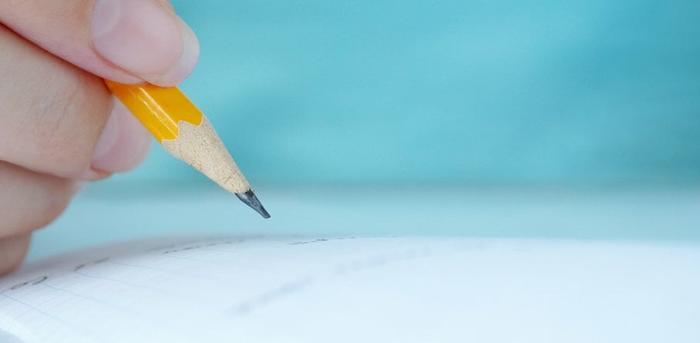
People sometimes ask me about the difference between a colon and a dash since they can both be used to introduce the next part of a sentence. So today we’re going to talk about how a dash is different from a colon, and also when you can use a comma in their place.
Dashes and Drama
Although they also have other uses, dashes and colons can both be used to introduce the next part of a sentence, and the difference between the two marks is subtle. A dash is a stronger and more informal mark than a colon. Think of a colon as part of the sentence that just ambles along. “Squiggly has two hobbies [and, now I’m going to tell you what they are, colon] playing jokes on Aardvark and cooking.”
A colon informs the reader that something more is coming along. The words after a colon define or clarify what came before the colon. The two hobbies before the colon are defined after the colon as playing jokes on Aardvark and cooking.
A dash also introduces extra or defining material, but, well, a dash is quite a dramatic punctuation mark. A dashing young man is certainly not an ordinary young man, and if you’re dashing off to the store, you’re not just going to the store, you’re going in a flurry.
A dash interrupts the flow of the sentence and tells the reader to get ready for some important or dramatic statement. If you added a dash to the “hobbies” sentence it would conceptually read something like this: “Squiggly has two hobbies [wait for it; wait for it; dash] playing jokes on Aardvark and cooking.” Wow!
Normally, you don’t want to follow a dash with something boring or mundane, so given that there isn’t really anything exciting about Squiggly’s hobbies, a dash may not be the best choice here. It would be a better choice if that sentence were part of a mystery novel where Aardvark has been attacked with fresh chocolate pudding, and the police were investigating Squiggly’s involvement. Then it could be a dramatic announcement that Squiggly’s two hobbies are cooking and playing jokes on Aardvark, and a dash would make more sense.
Commas in Place of Dashes and Colons
Sometimes, you can also use a comma where you’d use a dash or a colon. In the example sentence we’ve been using about Squiggly’s hobbies, a comma doesn’t feel like the best choice to me. Here’s a different sentence in which you could use any of the three punctuation marks because it includes a clear, simple appositive, a noun or noun phrase that defines the noun that it came right before or after (2). In this sentence you could use a comma, a dash, or a colon:
- The new suspect was Aardvark’s best friend: Squiggly.
- The new suspect was Aardvark’s best friend—Squiggly.
- The new suspect was Aardvark’s best friend, Squiggly.
All three sentences mean the same thing; they just have a slightly different feel or tone.
Colons and Dashes Relative to Quotation Marks
People often get confused about how to treat colons and dashes when they have to mix them with quotation marks. Colons and dashes are treated the same way: They both go outside quotation marks. So if our last sentence had put the words “best friend” in quotation marks to indicate that we didn’t really think he was Aardvark’s best friend (see the article on sneer quotes), the dash and colon would have gone after the last quotation mark.
Commas are different. The comma goes inside.
- The new suspect was Aardvark’s “best friend”: Squiggly.
- The new suspect was Aardvark’s “best friend”—Squiggly.
- The new suspect was Aardvark’s “best friend,” Squiggly.
Capitalization After a Colon or a Dash
Finally, let’s talk about whether you capitalize the first word after a colon or a dash.
A dash doesn’t require any extra thought regarding capitalization. You treat the first word after a dash the same way you’d treat it if it followed a comma.
On the other hand, you sometimes have to make a decision about capitalization when you use a colon. If the words that follow the colon aren’t a complete sentence, you lowercase the first word after a colon unless it’s something that would be capitalized anyway, such as a name. But if the words that follow the colon are a complete sentence, you can choose to capitalize the first letter of the first word like you would in a stand alone sentence. It’s a style choice, so you don’t have to, but you can (3, 4, 5). The key is to pick a style and be consistent.
If what follows the colon is a series of sentences, then you should capitalize the first letter of the first word in them all. You’re going to capitalize the first word of the second and third sentences, so you capitalize the first one too so they all look the same. Here’s an example:
- Susan had three demands: She wanted cake. She wanted ice cream. She wanted Billy Joel on stage.
In such cases, I recommend avoiding a dash.
More From Quick and Dirty Tips
- How Many Spaces After a Colon?
- Dashes Versus Colons
- How to Avoid a Common Comma Error: The Comma Splice
This article was originally published on Quick and Dirty Tips. It has been republished here with permission.